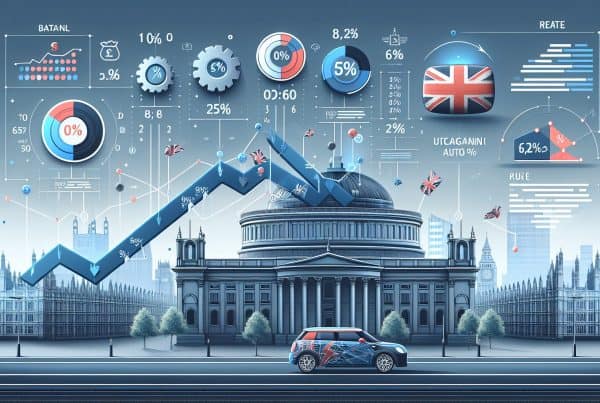Comprehensive Guide to Debt Consolidation Loans in Today’s Digital Financial Landscape
Debt consolidation loans have emerged as an essential solution for individuals struggling with multiple financial obligations. These loans not only simplify the repayment process but also have the potential to provide significant savings through lower interest rates. By merging various debts into one manageable loan, borrowers can streamline their financial commitments, making it easier to control their financial situations. This method helps reduce stress and allows for better financial planning and budgeting in the long run.
Explore the Fundamentals of Debt Consolidation: Essential Concepts and Advantages

At its essence, debt consolidation refers to merging multiple debts into a single, manageable loan, often secured at a lower interest rate. This process can dramatically improve financial clarity and focus, allowing borrowers to concentrate on one monthly payment instead of juggling multiple obligations. The advantages of this approach extend beyond mere convenience; it often leads to lower monthly payments and reduced interest rates, resulting in considerable savings over time. Furthermore, consolidating debts can enhance credit scores by lowering credit utilization ratios, a vital aspect of credit scoring, enabling individuals to maintain a healthy credit profile.
By consolidating debts, borrowers can simplify their financial landscape and position themselves favorably for future opportunities. Improved credit scores can translate into better loan offers and interest rates, enhancing financial health.
How Technology is Redefining the Loan Application Process
Technology integration has profoundly transformed how consumers engage with debt consolidation loans. Traditional banking practices often involved cumbersome paperwork and in-person consultations, which created significant hurdles for many borrowers. However, the loan application process has been revolutionized in this digital age. Online platforms enable borrowers to apply for loans swiftly and efficiently, all from the comfort of their homes.
With just a few clicks, individuals can compare various lenders, evaluate their offerings, and submit loan applications instantly. Many digital loan applications come with instant pre-approval options, allowing borrowers to assess their eligibility without impacting their credit scores. This evolution not only enhances accessibility but also empowers borrowers with vital information, enabling them to make well-informed financial decisions that suit their unique needs.
Identifying Key Players in the Evolving Digital Debt Consolidation Market
The realm of debt consolidation loans features several key players, each harnessing technology to provide competitive lending solutions. Prominent online lenders such as SoFi, LendingClub, and Marcus by Goldman Sachs have established themselves as leaders, offering customized loan options that cater to a spectrum of financial needs. These platforms are characterized by user-friendly interfaces, transparent terms, and expedited funding timelines, making them attractive to borrowers.
Moreover, the rise of fintech companies is disrupting traditional lending paradigms by utilizing innovative algorithms to assess borrower risk more accurately, facilitating faster loan approvals. These advancements improve the user experience and promote a more inclusive financial ecosystem, allowing individuals from various backgrounds to access crucial funding that can aid in their financial journeys.
Strategically Navigating the Digital Loan Market: Selecting Your Ideal Debt Consolidation Loan

Careful consideration and strategic planning are essential when selecting the most appropriate debt consolidation loan within a crowded digital landscape. With many options, it is crucial to effectively navigate interest rates, loan terms, and associated fees to secure the most advantageous loan tailored to your financial situation.
Thoroughly Compare Interest Rates and Loan Terms Online
As you evaluate debt consolidation loans in a digital age, comparing interest rates and loan terms is paramount. Borrowers should utilize online comparison tools that aggregate offers from various lenders, allowing for efficient side-by-side analyses. Pay particular attention to the Annual Percentage Rate (APR), which encompasses the interest rate and any applicable fees, providing a comprehensive understanding of the loan’s overall cost.
Additionally, consider the length of the loan term. While longer terms can result in lower monthly payments, they may also lead to higher total interest costs over the life of the loan. Assess your unique financial situation to determine whether a shorter term with higher payments or a longer term with lower payments aligns better with your budgetary constraints and repayment goals. Ultimately, the right choice balances affordability and long-term financial well-being.
Awareness of Digital Loan Fees and Associated Charges
While digital platforms offer unparalleled convenience, it is vital to know the various fees that may accompany debt consolidation loans. Typical costs include standard origination fees, late payment penalties, and possible prepayment charges. Origination fees, typically calculated as a percentage of the total loan amount, can significantly affect the overall cost of borrowing.
Additionally, some lenders may impose late payment fees, which can accumulate quickly if not meticulously managed. Borrowers should also be vigilant about prepayment penalties, which could incur charges for settling the loan early. Understanding these fees upfront is crucial in preventing unexpected costs and ensuring a smoother borrowing experience.
The Crucial Influence of Credit Scores on Digital Loan Approvals

Your credit score significantly influences your ability to secure debt consolidation loans online. Lenders often rely on credit scores to assess borrower risk, where higher scores typically result in more favorable loan terms and lower interest rates. Individuals with robust credit histories are usually rewarded with reduced rates, whereas those with lower scores might face higher costs or even outright denials.
To enhance your chances of obtaining approval, it is advisable to review your credit report for any inaccuracies and rectify discrepancies before applying. Additionally, taking proactive steps to improve your credit score—such as paying down existing debts and ensuring timely payments—can profoundly impact the loan offers you receive. Remember, managing your credit proactively can yield better financial outcomes in the long run.
Understanding the Application Journey: From Digital Submission to Fund Disbursement
Grasping the application process for debt consolidation loans in a digital age is vital for a seamless borrowing experience. The transition from filling out online forms to receiving actual funds can be smooth if you are adequately prepared and informed.
Step-by-Step Process for Applying for a Digital Debt Consolidation Loan
The application process typically starts with gathering essential information such as personal details, financial history, and specifics regarding your debts. After selecting a suitable lender, you will complete an online application that may require information about your income, employment status, and outstanding debts. Many lending platforms also provide pre-approval options, allowing you to explore potential terms without impacting your credit score.
Upon submission, the lender will evaluate your application, which may involve a soft credit check. If your application is successful, you will receive a formal loan offer that outlines the terms and conditions. After acceptance, the lender will finalize the necessary paperwork, and funds can often be disbursed within a few days, making the entire process efficient and user-friendly.
Essential Documentation Needed for Online Loan Applications
We verify our identity and financial standing when applying for debt consolidation loans. These documents typically include governmen when applying for debt consolidation loanst-issued identification, proof of income such as recent pay stubs or tax returns, and detailed information about your outstanding debts, including account statements.
Preparing these documents in advance can expedite the application process and enable lenders to make informed decisions swiftly. Ensure that all information is accurate and up-to-date, as any discrepancies can lead to delays or potential denials of your application.
Strategies for Accelerating the Digital Loan Approval Process
To expedite your application process for debt consolidation loans, consider implementing the following strategies. Firstly, take the time to gather all necessary documentation beforehand. A comprehensive application with all required documents can minimize back-and-forth communication that prolongs approval.
Secondly, opt for lenders that provide quick online applications and streamlined processes. Some platforms feature instant decision-making capabilities, significantly reducing wait times. Lastly, maintaining open communication with your lender throughout the process can help promptly address any concerns, ensuring a smoother experience overall.
Effective Management of Your Debt Consolidation Loan in the Digital Era
Once you have secured a debt consolidation loan, managing it effectively is crucial for long-term financial success. The digital age offers many tools and platforms to facilitate loan management, making the process more straightforward.
Utilizing Online Portals for Efficient Loan Management and Payments
Most lenders provide online portals that allow borrowers to manage their loans, view payment schedules, and track their progress. These digital platforms typically feature user-friendly dashboards that clearly overview your loan balance, payment history, and upcoming due dates.
By leveraging these online tools, borrowers can maintain organization and ensure timely payments, ultimately preventing late fees and protecting their credit scores. Many lenders also offer mobile applications, enabling you to manage your loan on the go, making it easier to stay on top of your financial obligations and commitments.
Establishing Automatic Payments and Alerts for Timely Reminders
One of the most effective methods for managing a debt consolidation loan is to set up automatic payments. Automating your payments reduces the risk of missing due dates, which can lead to late fees and negatively impact your credit score. Most lenders provide this feature, allowing you to specify the payment amount and frequency to fit your financial schedule.
In addition to automatic payments, configuring alerts for upcoming due dates can be a helpful reminder. Many online portals and mobile apps allow users to customize notifications, ensuring you remain informed and proactive regarding your financial responsibilities.
Tracking Your Credit Score with Digital Monitoring Tools
Consolidating debt can profoundly affect your credit score, which is essential to your progress. Numerous digital tools and applications offer free access to credit scores and updates, enabling you to track changes over time and understand how your debt consolidation loan influences your credit profile.
Knowing your credit score changes lets you make informed decisions about future borrowing and financial management. Furthermore, monitoring your credit helps identify any inaccuracies that may require correction, ultimately enhancing your financial health and stability.
Real-World Experiences: Success Stories and Cautionary Tales in Debt Consolidation
The journey associated with debt consolidation loans in a digital age is filled with diverse experiences, encompassing both successes and cautionary tales. By learning from these real-world insights, future borrowers can navigate their financial paths more effectively and make informed decisions.
Success Stories Highlighting Effective Debt Consolidation Through Digital Loans
Take, for example, the story of Sarah, who successfully consolidated her student loans and credit card debts using an online lender. By securing a significantly lower interest rate, she reduced her monthly payments and accelerated her journey toward financial independence. With digital tools, Sarah managed her payments effectively, notably improving her credit score.
Similarly, John utilized a digital platform to consolidate his multiple credit card debts. By streamlining his payment process, he found budgeting and allocating funds toward savings significantly easier. His experience underscores how leveraging technology can lead to successful debt management and enhanced financial stability.
Common Mistakes to Avoid When Engaging with Digital Debt Consolidation
While many borrowers have succeeded through debt consolidation loans, certain pitfalls can disrupt financial journeys. One prevalent error is neglecting to read the fine print. Many individuals overlook crucial fees and terms that can drastically alter the total cost of their loans.
Additionally, some borrowers may mistakenly believe that consolidation is a cure-all for their financial troubles. Without addressing the underlying causes of debt, such as overspending or a lack of budgeting, individuals may find themselves trapped in a cycle of borrowing. It is vital to approach consolidation as part of a broader financial strategy rather than a standalone solution.
Expert Recommendations for Maximizing the Benefits of Digital Debt Consolidation
Financial experts advocate for a strategic approach to debt consolidation loans. First and foremost, borrowers should engage in comprehensive research to identify lenders that best match their financial needs. Open communication with lenders can also facilitate a better understanding of loan terms and conditions.
Experts further emphasize the importance of establishing a post-consolidation budget. By comprehending your new financial landscape and planning accordingly, you can prevent future debt accumulation and work toward sustained financial well-being. Lastly, consider seeking professional financial advice if necessary, as tailored strategies can significantly enhance your financial outcomes and stability.
Anticipating the Future of Debt Consolidation in a Digital Economy
The domain of debt consolidation loans is continually evolving, driven by technological innovations and shifting consumer preferences. As we gaze into the future, several trends are emerging that will shape the landscape of debt consolidation in a digital world.
Innovative Trends Shaping Digital Debt Consolidation
Among the most notable trends is the emergence of peer-to-peer lending platforms. These platforms connect borrowers directly with investors, often resulting in more favorable terms than traditional lenders. Additionally, the increasing focus on mobile banking is prompting lenders to develop more advanced applications and digital interfaces, improving user experiences and accessibility.
Moreover, as financial literacy becomes increasingly vital, many digital platforms incorporate educational resources to empower borrowers. These resources aid consumers in making informed financial decisions, contributing to a more knowledgeable and responsible borrowing population.
The Influence of AI and Machine Learning on Loan Approval Processes
Artificial Intelligence (AI) and machine learning are revolutionizing loan approval. Lenders are progressively using these technologies to analyze borrower data more thoroughly, facilitating quicker and more precise assessments. This innovation reduces the time spent on manual reviews and increases the likelihood of securing loans for individuals with non-traditional credit histories.
AI also allows lenders to provide personalized loan options tailored to financial situations. By analyzing spending patterns and repayment histories, lenders can create customized solutions that better cater to borrowers’ unique needs, ultimately enhancing the lending experience.
Preparing for a Financial Future Focused on Digital Solutions
As the landscape of debt consolidation loans in a digital age continues to evolve, consumers must proactively prepare for these changes. Staying informed about emerging technologies and trends is crucial for navigating this dynamic financial environment. Investing time in financial education will enhance your understanding of the various digital lending options and strategic approaches available.
Also, maintaining a proactive stance on credit management will favourably position you in an increasingly digital financial landscape. Using the tools and resources, you can make informed decisions promoting long-term economic health and stability.
Frequently Asked Questions About Debt Consolidation Loans
What are the key features of debt consolidation loans?
Debt consolidation loans allow individuals to merge multiple debts into a single loan, often featuring a lower interest rate, simplifying. Streamlining featurement process, simplifying monthly payments, and potentially decreasing consolidation loan online?
You can initiate the application process for a debt consolidation loan online by selecting a lender, completing a digital application, and submitting the necessary documents for approval.
What documentation is necessary for a digital debt consolidation loan application?
Typically, you will need personal identification and details regarding your existing debts when applying for a digital debt consolidation loan.
Prevalent fees include origination fees, late payment penalties, and potential prepayment charges. Always carefully review the terms before agreeing to a loan.
What steps can I take to improve my chances of loan approval?
Enhancing your credit score, ensuring all documentation is accurate, and considering applying with a co-signer can significantly improve your chances of securing loan approval.
How does debt consolidation affect my credit score?
Debt consolidation can lower your credit score initially due to hard inquiries but may improve it over time by decreasing credit utilization and promoting timely payments.
Is it possible to consolidate both student loans and credit card debts together?
Many lenders provide options for consolidating student loans and credit card debts into a student loan, simplifying your payment debt structure.
What is the average time frame for getting approved for a debt consolidation loan?
Approval times can vary by lender; some may offer instant decisions, while others might take several days to process your application and verify the provided information.
Should I opt for a secured or unsecured debt consolidation loan?
Secured loans typically come with lower interest rates but require collateral, whereas unsecured loans do not, making them less risky but often more expensive. What consequences arise from missing a payment on my debt consolidation loan?
Missing a payment can result in late fees, negatively impact your credit score, and potentially increase your interest rate. It is crucial to stay on schedule with your payments.




